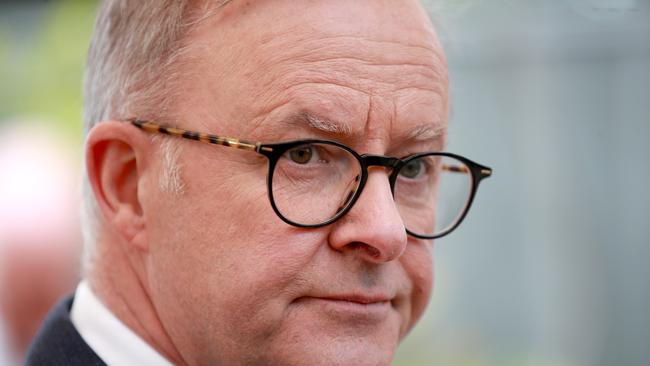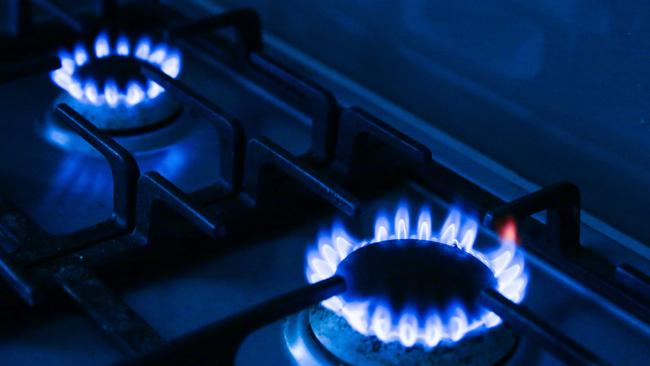Anthony Albanese commits to taking action against soaring energy prices
Gas companies will be brought to the table, and could be made to pay more, in a bid to drive down energy bills for everyday Australians.
Prime Minister Anthony Albanese says he will take action against soaring energy prices in order to provide short-term relief for struggling Australian households.
Meanwhile, his Industry and Resources Minister has taken aim at “greedy” LNG exporters and called for an urgent gas price mechanism to be implemented.
Ed Husic also he revealed gas contracts offered by exporters were “just as high if not higher” than before the September heads of agreement.
Labor had promised to cut household power bills by $275 by 2025 to the election, but after it failed to appear in last week’s budget Mr Albanese has now vowed to broker a deal by consulting with the resources sector and gas companies.
It comes as his government doubles down on its bid to not dish out one-off cost-of-living relief handouts for fear it would further impact inflation, favouring a widespread reformist agenda instead.
Mr Albanese admitted business relief would not be the priority of the negotiations, and suggested that Australia’s largest gas companies could face higher taxes.
Speaking at The Australian-Melbourne Institute Outlook conference on Wednesday, Mr Albanese said the government was not ruling anything out.

“The truth is that there are quite extraordinary profits being made, at the same time as you have prices which are putting real pressure on households and businesses, particularly in the manufacturing sector,” he said.
“We’re seeking a cooperative arrangement. If we went out without co-operation, then the answer is easy.”
Mr Husic argued prices were high because producers were failing to pass on lower prices to manufacturers.
“This is not a shortage of supply problem, this is a glut of green problem that has basically short circuited and common sense must prevail,” Mr Husic told ABC Radio.
“To my mind they are saying they’re not taking this issue seriously, they are not picking up the signals, they are completely tone deaf to the view that’s being expressed publicly.
“This is why we’ve got to a point where we are now forced to consider a wide range of interventions to get a better deal because these companies are just not doing the right thing.”
Mr Husic confirmed the ACCC was looking at whether to recommend implementing a mandatory code of conduct and price caps for gas companies.
“That code of conduct is to help better guide the way in which these contract get negotiated … in terms of the other areas, we want to work that through internally,” he said.
When asked about whether the government’s intervention would be temporary, Mr Husic said his preference was to improve the bargaining framework itself.
He added that the Treasurer was considering the option of taxes for oil and gas companies.
“If you look at what the Treasurer has said over the last few days, he is examining those types of options and again that will be in the mix of things he thinks through,” Mr Husic said.
“I think the bigger focus long term is the price mechanism.”
Nationals leader David Littleproud criticised Mr Albanese and his government for “demonising” gas companies.
“All the government has to do is instead of demonising these gas companies, as they’ve done for the last nine years and blaming them for their own inaction in the policy setting of making sure it’s all export is increase the supply,” he told the Nine Network.
“This reckless path they are taking us on means everyone will pay.”

Mr Albanese said his government had managed to keep the lights on earlier this year, despite the threat of widespread blackouts caused by power plant shutdowns and global shortages.
“We are working through with state and territory governments … with the private sector as well,” he said.
“(We want to) make sure that we have fixed supply, and we need to fix prices in the short term as well.”
Mr Albanese and his government have been vocally critical of the previous government’s lack of investment in renewables, echoing his sentiments again at the conference saying it had a broader impact.
“The consequences of Russia’s illegal invasion of Ukraine are driving up fuel costs and energy bills around the world, and the impact of that here in Australia is magnified by a decade of ideological opposition to renewables and the neglect of key energy infrastructure – leaving us more vulnerable to global shocks,” he said during his address


